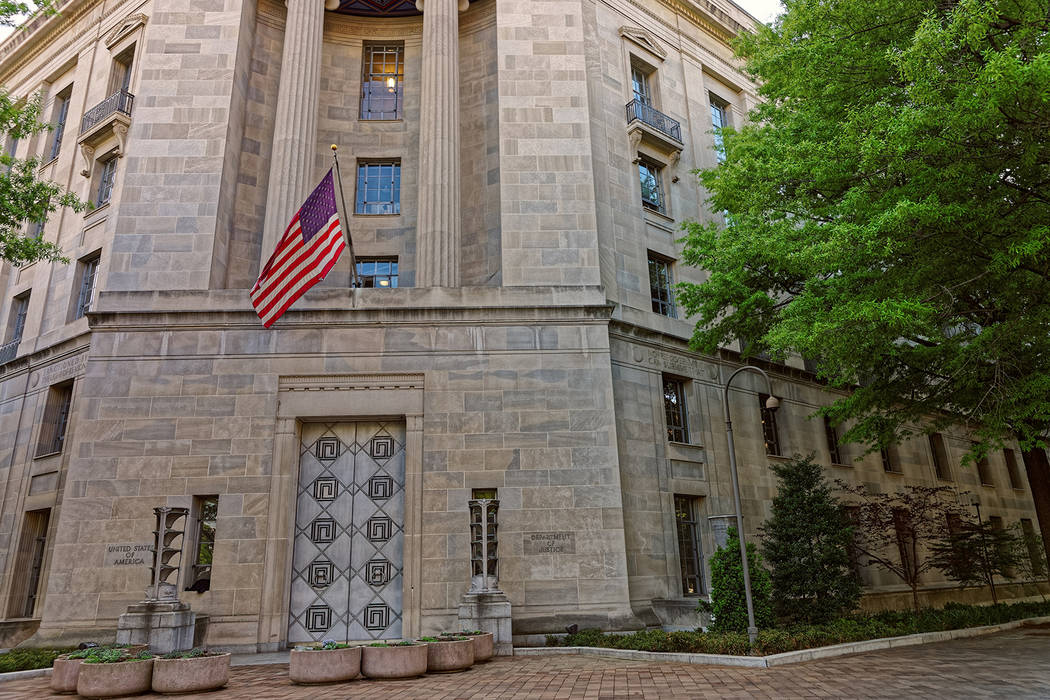Hate crimes get Justice Department attention
The U.S. Justice Department this week released an update on hate crimes and announced the launch of a new comprehensive hate crimes website designed to provide a centralized portal for the department’s hate crimes resources for law enforcement, media, researchers, victims, advocacy groups, and other related organizations and individuals.
The resources include training materials, technical assistance, videos, research reports, statistics, and other helpful information from all of the department components working on hate crimes.
In recent years, the department has ramped up its hate crimes prosecution program and increased training of federal, state, and local law enforcement officers to ensure that hate crimes are identified and prosecuted to the fullest extent possible, the department said in a news release.
The Department of Justice Law Enforcement Roundtable on Improving the Identification and Reporting of Hate Crimes being conducted this week through the department’s Hate Crimes Enforcement and Prevention Initiative is an example of ongoing efforts to spur communication and cohesion among those in the field working on hate crimes.
Over the past 10 years, the Department of Justice has charged more than 300 defendants with hate crimes offenses, including 50 defendants in fiscal year 2017 and 2018.
In fiscal year 2018, the department charged 27 defendants in 22 cases, and obtained 30 convictions. Since January 2017, the department has indicted 50 defendants involved in committing hate crimes and secured convictions of 51 defendants for hate crime incidents.
At this week’s roundtable, Deputy Attorney General Rod Rosenstein announced additional new efforts to assist in combating hate crimes, including an $840,000 grant from the National Institute of Justice (NIJ) for a new research study on hate crimes data collection, and the extension of technical assistance resources relating to hate crimes through the department’s Collaborative Reform Initiative.
The website, the roundtable, the National Institute of Justice grant, and the Collaborative Reform resources are just some of the department’s efforts that reflect discussions with law enforcement, advocates, faith leaders, and community members at the department’s Hate Crimes Summit and National Summit on Crime Reduction and Public Safety in June 2017.
“Individuals should be able to live their lives free from the threat of violence and discrimination, no matter who they are, what they believe, or how they worship,” Acting Assistant Attorney General John Gore said in a statement. “I am proud of the work that the Civil Rights Division and our partners in the U.S. Attorneys’ offices have accomplished working with the FBI and our state and local law enforcement partners. We will continue to prioritize our work bringing perpetrators of hate crimes to justice throughout the country.”
The department continues to conduct training and outreach programs in order to work with the network of U.S. attorney’s offices, local communities and organizations, and law enforcement to find, identify, investigate, and prosecute hate crimes cases all over the country.
These programs include state and local law enforcement trainings, roundtable and panel discussions, stakeholder telephone conferences, and hate crime summits.
More information about the department’s hate crimes efforts, along with a searchable collection of the department’s resources for law enforcement, community groups, researchers and others, are available on the new webpage, www.justice.gov/hatecrimes
At a glance
Recent U.S. Department of Justice work on hate crimes prosecutions:
On Saturday, within hours of the shooting at the Tree of Life Jewish Synagogue, the department filed hate crime and other charges against the defendant Robert Bowers. The criminal complaint charges Bowers with 29 counts setting forth federal crimes of violence and firearms offenses. The crimes of violence are based upon the federal civil rights laws prohibiting hate crimes.
This month, a Texas man was sentenced to almost 25 years in prison for a hate crime relating to the 2017 burning of a mosque in Victoria, Texas. A jury found him guilty on July 16 for a hate crime in the burning of the Victoria Islamic Center (the mosque) on Jan. 28, 2017, and for the use of fire to commit a federal felony.
In September, a Florida man was sentenced to four years in prison, three years' supervised release, and $1,800 in restitution for obstructing the free exercise of religious beliefs by threatening, in a phone message, to detonate a bomb at a mosque in Pembroke Pines, Florida.
In August, a Kansas man who shot three men at a bar in Olathe was sentenced to life in prison without parole. The defendant killed one victim, and attempted to kill a second victim, because of their actual or perceived race, color, religion, or national origin. The defendant fired his weapon at a third man who had chased the defendant after the attack. Earlier this year, the defendant plead guilty to hate crimes, firearms, attempted murder, and murder charges. According to the agreement he signed when he plead guilty, the defendant went up to the victims in a bar, demanded to know how they came into the United States and called one victim a "terrorist."
In June, an Ohio man was charged with federal hate crimes including a hate crime act that resulted in the death of Heather Heyer, for his actions during the Aug. 12, 2017 "Unite the Right Rally" in Charlottesville.
Source: U.S. Department of Justice

















